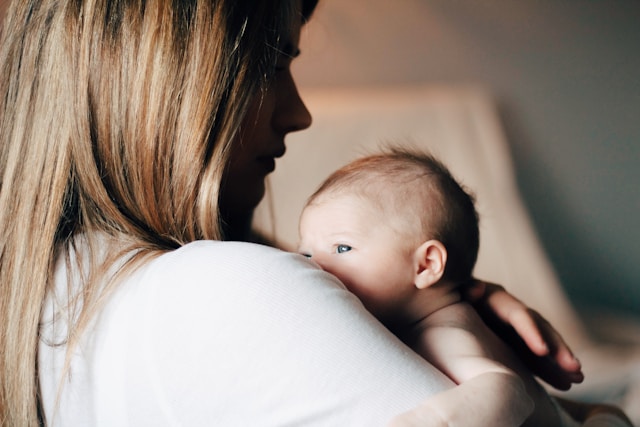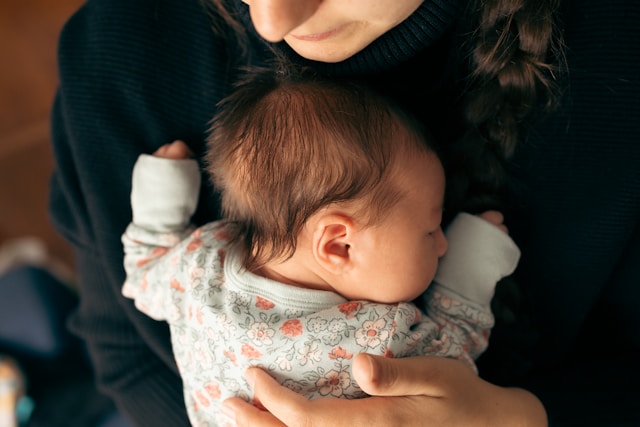If you’re in a relationship with a narcissist, and you decide to start a family with them, you’re in for a world of trouble.

Having a baby is meant to be a joyous time in your life, with parenting being one of the most challenging yet rewarding experiences you can have. However, it also happens to be an occasion that can show you the very worst in the narcissist in your life — here’s why.
1. The spotlight isn’t on them anymore.

Narcissists love being the centre of attention, but babies are natural spotlight stealers. Suddenly, everyone’s cooing over the little one instead of fawning over the narcissist. The shift in attention can be a real blow to their ego, triggering feelings of jealousy and resentment.
2. They’re not the most important person in the room.

Babies need constant care and attention, and for a narcissist who’s used to being the most important person in every situation, this can be a hard pill to swallow. They might feel like they’re playing second fiddle to a tiny human who can’t even talk yet. Yes, they’re really that immature.
3. They can’t control the baby’s behaviour.

Narcissists often like to be in control, but babies don’t exactly follow orders. They cry when they want, sleep when they want, and generally do their own thing. The lack of control can be incredibly frustrating for a narcissist who’s used to manipulating situations to their liking.
4. The baby doesn’t provide the narcissistic supply they crave.

Narcissists thrive on admiration and praise, but babies can’t provide that kind of ego boost. A baby won’t tell them how amazing they are or stroke their ego. Living with a lack of narcissistic supply, especially since their partner will likely be focused on the baby, can leave them feeling empty and unfulfilled.
5. They have to put someone else’s needs first.

Having a baby means constantly putting someone else’s needs before your own. For a narcissist, this is a foreign and uncomfortable concept. They’re used to their needs and wants taking priority, and having to focus on the baby’s needs instead can be a real shock to the system.
6. They can’t use their usual manipulation tactics.

Narcissists often rely on manipulation to get what they want, but these tactics don’t work on babies. You can’t guilt-trip or gaslight an infant. This loss of their usual tools for getting their way can leave narcissists feeling powerless and frustrated.
7. The baby exposes their vulnerabilities.

Caring for a baby can bring up feelings of inadequacy or fear, even in the most well-adjusted parents. For narcissists, who often have a fragile sense of self underneath their grandiose exterior, these vulnerabilities can be especially threatening. The fear of not being a perfect parent can trigger their deepest insecurities.
8. They struggle with the lack of instant gratification.

Narcissists often expect immediate results and praise for their efforts. But raising a child is a long-term commitment with often delayed rewards. The lack of instant gratification in parenting can be incredibly frustrating for someone used to getting what they want right away.
9. They can’t handle the loss of freedom.

Having a baby means saying goodbye to a lot of personal freedom. Spontaneous nights out, uninterrupted sleep, and me-time become rare luxuries. For a narcissist used to doing whatever they want whenever they want, this can feel like a prison sentence.
10. The baby challenges their sense of perfection.

Narcissists often have an inflated sense of their own abilities, but babies have a way of humbling even the most confident parents. The messy, unpredictable nature of caring for an infant can shatter a narcissist’s illusion of perfection, which tend to trigger feelings of inadequacy and shame.
11. They struggle with unconditional love.

Babies love unconditionally, but narcissists often struggle with this concept. They’re used to love being conditional on their performance or charm. The pure, unconditional love of a baby can be confusing and even threatening to the way they see the world.
12. The baby doesn’t mirror their greatness.

Narcissists often see their children as extensions of themselves, expecting them to mirror and magnify their own perceived greatness. But babies are their own little people with their own personalities, and the failure to be a perfect mini-me can be deeply disappointing for a narcissist.
13. They can’t handle the constant criticism and advice.

New parents often face a barrage of unsolicited advice and criticism from family, friends, and even strangers. For a narcissist who believes they know best and can’t handle criticism, the constant input can feel like a personal attack, triggering defensive and angry responses.
14. The baby forces them to confront their own childhood.

Having a child often brings up memories and feelings from your own childhood. For narcissists, who may have unresolved trauma or issues from their past, this can be particularly triggering. They may end up facing painful memories or realisations they’re not equipped to handle.
15. They struggle with the shift in relationship dynamics.

A new baby often changes the dynamics of a relationship, with partners focusing more on their roles as parents than on each other. For a narcissist used to being the primary focus of their partner’s attention, such a shift can feel like abandonment, which makes them jealous and resentful.
16. The baby represents a loss of their idealised future.

Narcissists often have grandiose visions of their future. A baby, with all its demands and limitations, can shatter these idealised plans. The reality of parenthood may not align with their fantasies of success and admiration, leading to disappointment and resentment towards the child who represents this loss.




